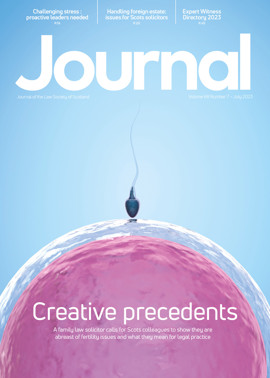Put your whole self in
 "Just wanted to say I loved your green saree*. Not like the usual photos I normally see of professionals on LinkedIn! I showed my mum – she was so happy you wore one to a work event haha!”
"Just wanted to say I loved your green saree*. Not like the usual photos I normally see of professionals on LinkedIn! I showed my mum – she was so happy you wore one to a work event haha!”
This was a message I received recently from a young person starting out in their career, and it made me reflect on how far I had come in my own journey. Although I am finally confident enough to show off my Indian heritage and wear traditional clothing to an awards dinner, for many years I felt I needed to hide my true personality and mask quite a bit of my identity to “fit in” at work.
I’ve lost count of the number of times I pretended to know about the music, films, and food my colleagues were discussing, rather than just tell them I had no idea what they were talking about as I was brought up mainly on a diet of Punjabi food, Bollywood movies and the glorious voices of Mohammed Rafi, Nusrat Fateh Ali Khan, and Gurdas Maan! The fear of being judged or looking stupid for not knowing, or liking, the same things that my colleagues did, was very real.
How things have changed. Now, law firms actively encourage and advise staff to bring their “whole self” to work as it’s seen to have a raft of benefits – building trust, enhancing teamwork, and fostering inclusion being some of them. The legal profession wants its members to feel welcome and that they belong, no matter what their background.
But is it safe?
However, the reality can sometimes feel like “Bring your whole self to work but maybe don’t be so obvious about the XYZ part.” So, how much do we, or should we, share of our authentic selves in a professional setting? Or do we simply show our “best self”?
Most people tend to have a work version of themselves and another (real?) version that is usually reserved for their friends and family. Bringing the real version to work – quirky habits, individual looks, cultural mindset, political views – without the risk of discrimination, ridicule, rejection, or fear may be seen as the ideal scenario for some. However, most people are afraid, or simply don’t want to. Having no boundaries whatsoever in the workplace is unlikely to go down well. Similarly, hiding our true selves can prevent us from forming meaningful professional and social networks that help towards building a successful career. Being genuine is credited with enabling people to perform better and create collaborative, open-minded environments.
Having spoken to colleagues and friends about this, the consensus seems to be that people tend to bring their full selves to work when they feel safe. To help employees feel safe, employers must invest more into training leaders to help create inclusive cultures where someone’s background is not seen as a barrier to success at work. Good, emotionally intelligent leaders, who really listen to individuals and appreciate differences, are vital to making this happen, as are leaders from diverse backgrounds with lived, authentic experience that will inspire others.
Organisations must also be careful not to single out those who do bring their authentic selves to work, especially if they are the only person from a particular background. Saying things like “Yes, but you know what I mean… where are you really from?” when you don’t like the answer of “Glasgow”, or making assumptions based on individual perceptions of a person’s background, is never a good idea!
Also, this is not just about individuals feeling safe enough to share personal matters – it applies to talking about work matters too. If individuals feel unable to share their true concerns or feelings about work issues, how can employers improve?
Leadership matters
While the intent behind “be yourself” is good, it can only truly work if underlying workplace culture problems are addressed first. Individuals need to feel psychologically safe. Seeing leaders set an example by being themselves, showing strengths and weaknesses, resonates and builds trust and safety.
Employers that invite openness and encourage staff to show more of their personal talents and skills at work, in a supportive culture, to get jobs done with efficiency and excellence, are on the right track. Ultimately, however, what, or whether, individuals share will always be a personal choice based on how safe they feel. Until that trust exists, much of the workforce will likely continue to filter themselves, just as they do on social media.
*saree – a garment consisting of a length of cotton or silk elaborately draped around the body, traditionally worn by women from South Asia
Perspectives
Features
Briefings
- Civil practice: Laying down the law on expenses
- Licensing: The challenges of short terms lets
- Planning: Local development planning guidance issued
- Insolvency: Bill brings in mental health moratorium
- Tax: A single tax on securities
- Immigration: Legality and the Illegal Migration Bill
- AI and in-house: where are we heading?
In practice
- Public policy highlights: July 2023
- Survey reveals growing lawyer diversity
- AGM roundup
- Risk: Letters of engagement – why they matter
- The Unloved Lawyer: "Opinions are my own"
- Diploma admissions: a thorny issue
- Ask Ash: holiday pressures
- The Expert Witness Directory 2023
- Expert witness CVs – what to include?







